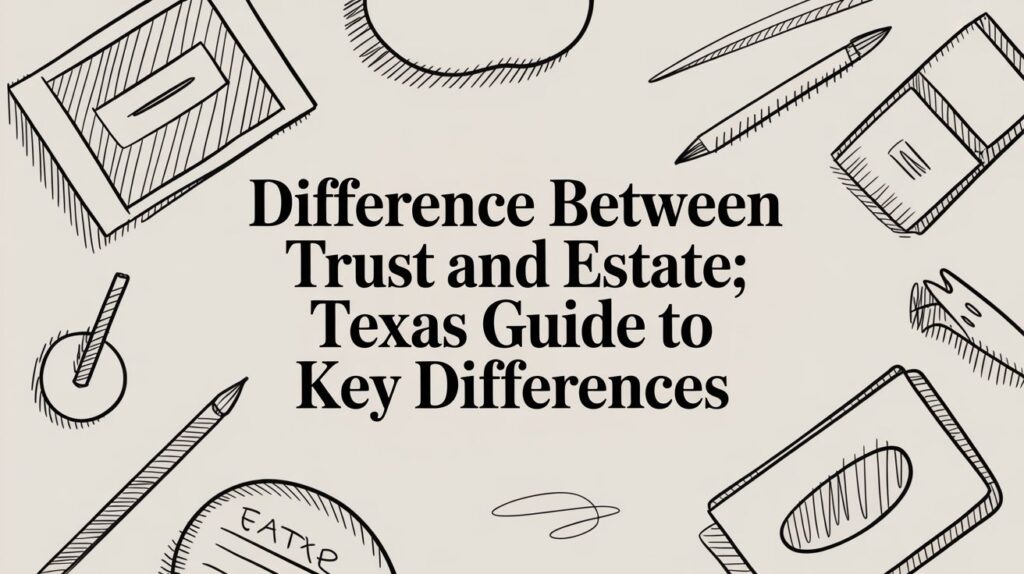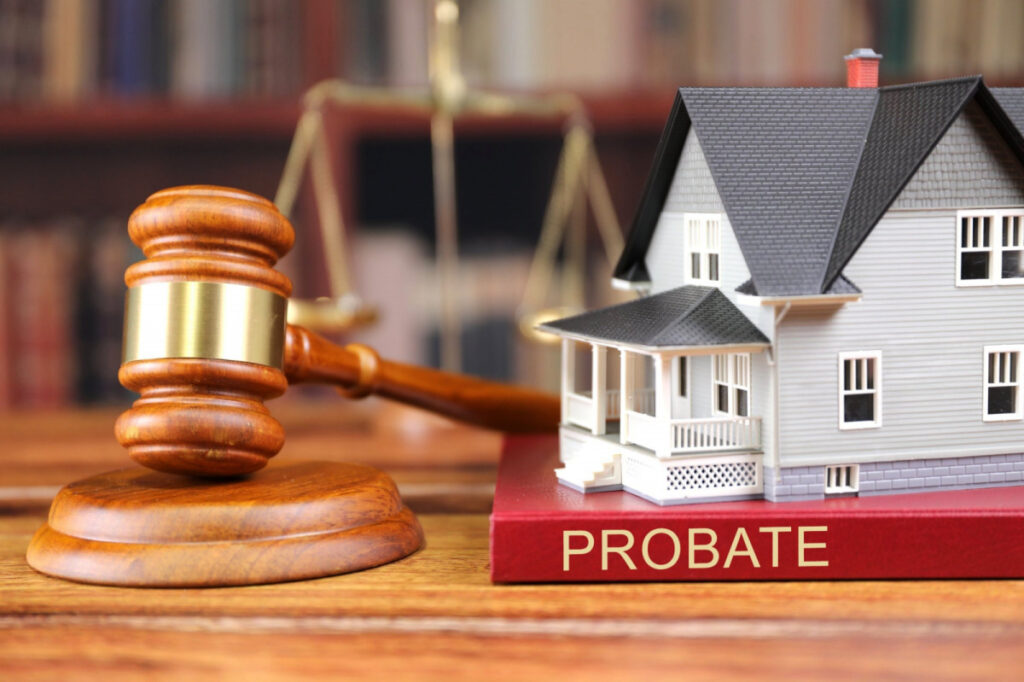In the world of estate law, few figures carry as much quiet power as a probate judge. They don’t usually make headlines, but when a loved one passes away and their assets need to be distributed, a probate judge becomes one of the most influential people in the entire legal process. If you’ve never had to go throughprobate court, it might surprise you to learn just how much authority these judges have. That’s why understanding probate judges’ influence on estate cases is so important—because their decisions can directly impact who inherits what, how long the process takes, and whether legal disputes explode or quietly resolve.
In this article, we’ll take a deep dive into the role of probate judges in estate cases, explaining what they do, how they make decisions, and how their authority affects executors, beneficiaries, and even creditors. We’ll also explore common scenarios where a judge’s influence is especially crucial—backed by real-world examples that show just how significant their role can be.

What Is a Probate Judge?
The Courtroom Authority Over Estates
A probate judge is a specialized judicial officer who presides over matters related to wills, estates, guardianships, and conservatorships. In Texas, these judges work within probate courts—though in smaller counties, district or county courts may handle probate matters as well. Their role becomes especially critical when estates are contested, poorly documented, or emotionally charged.
Their duties include:
- Validating wills
- Appointing executors or administrators
- Resolving disputes between heirs or beneficiaries
- Overseeing asset distribution
- Ensuring debts and taxes are paid
- Approving final accountings
In short, they manage the legal process of transferring someone’s property after death. But understanding probate judges’ influence on estate cases requires more than listing duties—it’s about recognizing their ability to guide, delay, or completely reshape how an estate is handled. Their courtroom decisions can impact generations, not just the current list of beneficiaries.
Real-Life Story: One Judge, Two Different Outcomes
Consider this real example from Harris County. Two siblings—Maya and Derek—were named co-executors in their father’s will. Everything seemed fine until disagreements emerged over selling the family ranch. Maya wanted to sell, while Derek refused.
Both siblings filed motions in probate court. The judge heard both sides, reviewed the will’s language, and ultimately removed Derek as co-executor, citing his refusal to act in the estate’s best interest.
That one ruling shifted the entire course of the case. Without understanding the probate judge’s role in estate cases, Derek assumed he could delay the sale indefinitely. Instead, he lost his authority altogether.
Validating the Will: First Stop on the Probate Train
What the Judge Looks For
The first task for a probate judge is to determine whether the will is valid. This step is known as probating the will, and it usually happens soon after the executor files an application with the court.
The judge reviews several key factors:
- Whether the will was properly executed
- If it’s the most recent version
- Whether it was signed voluntarily
- If witnesses were properly present

Any issues—like missing signatures, suspected fraud, or lack of testamentary capacity—may trigger a court hearing. The judge then makes a decision that can either move the process forward or bring it to a screeching halt.
That’s why understanding probate judges’ influence on estate cases begins with the will itself. Their ruling on its validity controls everything that follows.
Appointing an Executor or Administrator
Not Always the Person You’d Expect
In theory, the will names the executor. But in practice, the judge must approve them. If the will doesn’t name an executor—or the person refuses, is deceased, or is legally unqualified—the judge appoints an administrator instead.
Judges weigh multiple factors here:
- Is the person capable of managing finances?
- Are there conflicts of interest with other heirs?
- Have any objections been raised by beneficiaries?
Judges can even remove someone later if they’re not fulfilling their duties. This decision, while procedural on the surface, often shapes the dynamics between family members and the pace of theprobate process.
So when it comes to probate judges’ influence on estate cases, the choice of executor is a major early turning point.
Overseeing Inventory and Appraisals
Confirming What’s in the Estate
Once the executor is appointed, they must submit an inventory of assets, along with appraised values. The judge then reviews and either approves or rejects it.
This might seem administrative, but it’s crucial. If assets are undervalued, hidden, or missing, the judge can demand amendments, issue orders to compel cooperation, or even refer cases for investigation.
Examples include:
- Real estate that was left off the inventory
- Antique collections misrepresented in value
- Disputes over jointly owned property
In many cases, this is where probate judges’ influence on estate cases becomes apparent. Their ability to question, reject, or demand clarification protects beneficiaries and ensures fairness.
Settling Disputes Between Heirs
Keeping the Peace—Or Drawing the Line
One of the most challenging aspects of probate involves family conflicts. When heirs argue over personal property, executor decisions, or interpretations of the will, the judge steps in as a legal referee.
These conflicts might involve:
- Allegations of undue influence
- Questions of will forgery
- Disputes over asset division
- Claims that one heir stole from the estate
Judges resolve these disputes by:
- Holding hearings
- Weighing evidence
- Reviewing testimony
- Interpreting legal standards
A single ruling can shut down months of bickering—or ignite appeals that drag on for years. For families, understanding probate judges’ influence on estate cases means realizing that these decisions are often final and binding.
Approving Debts and Creditor Claims
Who Gets Paid—and Who Doesn’t
Before any heir sees a dime, all valid debts and taxes must be paid. Creditors submit claims, which the executor reviews. The judge then confirms which claims are legitimate.
Judges may also:
- Deny improper claims
- Resolve disputes about business debts
- Order the sale of property to satisfy obligations

In some instances, the judge must prioritize which debts to pay when the estate lacks sufficient funds. Their judgment directly determines how much money is left for heirs, making this a critical part of their influence.
Real-Life Scenario: Delayed Distribution by Court Order
Samantha was the sole heir to her uncle’s estate, which included a house and savings account. She expected to receive everything within a few months.
However, the probate judge paused the distribution because a creditor filed a late claim. The judge ordered a temporary freeze until the claim could be reviewed. It took another six months before Samantha received any assets.
Although she wasn’t happy, the judge acted to protect the estate—and prevent potential liability for the executor. This shows how probate judges’ influence on estate cases doesn’t always align with heir expectations, even when their decisions are legally sound.
Monitoring the Executor’s Conduct
Holding Fiduciaries Accountable
Executors and administrators owe a fiduciary duty to the estate. That means they must act in good faith, avoid self-dealing, and serve all beneficiaries fairly. If they don’t, the judge can:
- Demand a formal accounting
- Order corrective action
- Remove and replace them
- Impose fines or sanctions
This power protects the estate but also adds pressure. Executors who don’t fully understand their duties often face court intervention. So if you’re named as an executor, understanding probate judges’ influence on estate cases is vital to avoid missteps.
Approving Final Distributions
The Last Word
At the end of the probate process, the judge must approve the final accounting and distribution plan. Only then can the executor distribute assets to heirs.
The judge reviews:
- All expenses and debts paid
- Tax filings
- Accounting records
- Any unresolved claims
If something doesn’t add up, the judge can delay or reject the distribution, requiring the executor to fix the issue. This final checkpoint underscores how probate judges’ influence on estate cases continues through to the very last stage.
When Judges Go Beyond the Basics
The Human Side of Probate
Sometimes, probate judges extend their role beyond just legal decisions. They offer mediation support, encourage peaceful resolution, or help interpret emotionally charged situations with compassion.
Judges may:
- Recommend alternatives to litigation
- Mediate between feuding heirs
- Take into account a family’s history when making discretionary rulings

Their courtroom may be governed by law, but their decisions often reflect a deeper understanding of family dynamics, legacy, and justice.
Key Takeaways on Probate Judges’ Role in Estate Cases
Probate judges do far more than simply rubber-stamp paperwork. Their decisions impact timelines, relationships, finances, and the emotional well-being of everyone involved. From validating wills to resolving disputes, overseeing distributions, and holding executors accountable, their authority is vast and nuanced.
By understanding probate judges’ influence on estate cases, you’re better equipped to navigate probate with clarity and confidence. Whether you’re an executor, heir, or just planning your own estate, knowing how judges think—and how they operate—can help you avoid costly mistakes and unnecessary delays.
In a system that can feel cold and bureaucratic, the probate judge often serves as the voice of reason, fairness, and—when necessary—accountability. The more you understand their role, the more empowered you’ll be to protect your legacy and support your family through the process.








